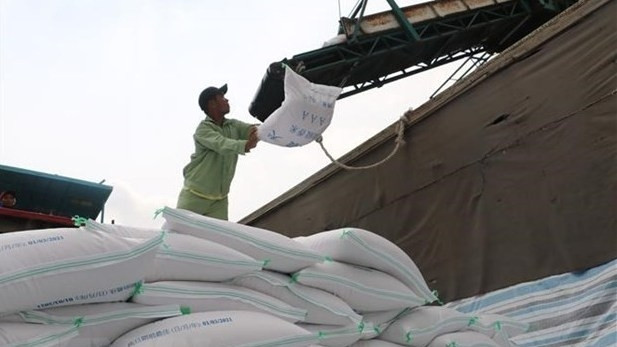The traditional markets of the Vietnamese food crop such as the Philippines, Malaysia and China still recorded stable growth in the period.
According to the ministry, the food demand in the world is forecast to continue increasing, with many signals showing that businesses can make good use of opportunities from the markets as well as free trade agreements (FTA) to help boost Vietnam's export.
The Vietnam Food Association (VFA) reported that the export price of Vietnamese rice on April 13 was the top among the large major rice exporting countries.
In the last quarter, Vietnamese businesses mainly delivered rice to the Philippines under contracts signed last year, but many signs show that the demand is positive.
Since the European Union – Vietnam Free Trade Agreement (EVFTA) came into effect, the export price of Vietnamese rice to the EU has increased by 10 - 20 USD/tonne. According to the EU statistical office Eurostat, among the supplies for the bloc, rice from Vietnam saw the highest price with an increase of more than 20 percent.
Vietnamese rice exporters are advised to pay attention to improving the quality of rice in order to maintain a competitive advantage in thi EU market.
Rice market analyst Nguyen Dinh Bich said that the price of rice increased due to the impact of the Russia-Ukraine tension. In the world market, prices of agricultural products such as corn, wheat, and soybean have also increased sharply.
The VFA forecast that the rice export in the second quarter will be more stable as importing countries are stepping up their purchases, and more countries are interested in food stockpiling due to political tensions in a number countries.
















